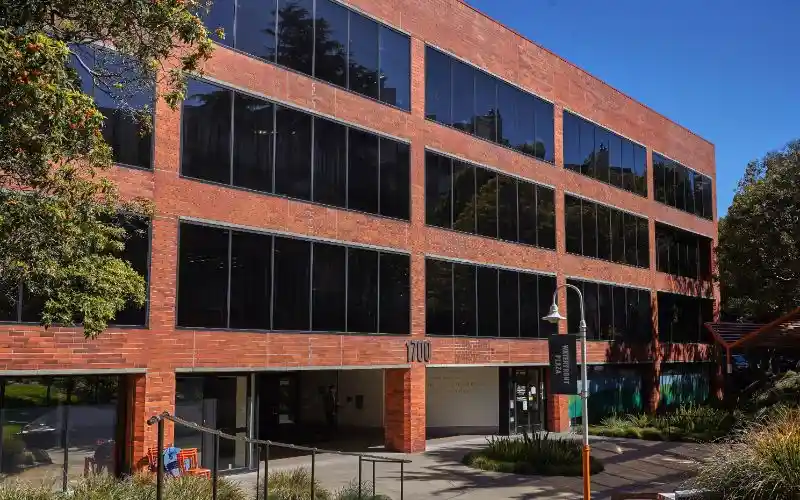





Curious about the functioning of virtual addiction treatment? This approach provides you with the opportunity to utilize services related to addiction recovery without leaving your home. We’ll dive into what encompasses virtual addiction treatment, its advantages, and its potential in assisting you or a loved one during virtual treatment.

Virtual addiction treatment includes various telehealth services, such as online therapy and telemedicine, offering convenient and flexible access to high-quality care. Technological advancements, particularly in mobile and texting, have greatly improved the delivery of addiction therapy, making it more accessible and effective. The COVID-19 pandemic has increased the demand for remote treatment options, highlighting the ongoing need for care in the recovery process.
Despite its benefits, transitioning to virtual care presents challenges such as information security and workflow management. However, the core of virtual addiction treatment remains focused on the mental, emotional, and physical well-being of patients, providing a comfortable environment that can be accessed from home.

Addiction treatment that is conducted virtually provides several improvements compared to conventional in-person treatment methods. The ability to undergo therapy within one’s own living space not only minimizes the shame often associated with pursuing assistance, but also increases involvement in the addiction treatment program. Without the necessity of commuting, virtual addiction programs extend access to those facing transportation or physical challenges.
Programs addressing virtual addiction have successfully bridged geographic barriers and diminished stigma, simplifying initial steps towards rehabilitation for many people. Participating in a treatment program from an environment where individuals feel comfortable can significantly boost the efficacy of their recovery journey.
Virtual addiction treatment provides exceptional adaptability. Participants have the liberty to arrange individual or group therapy appointments that align with their personal and professional obligations. This approach is particularly advantageous for patients with variable schedules, as therapists can tailor session timings to better meet their requirements.
Designed for practicality, virtual outpatient programs enable individuals to handle recovery while maintaining balance in other life areas. Such convenience guarantees care quality on par with conventional face-to-face settings, delivering a potent treatment option that seamlessly integrates into the patient’s lifestyle.
Engaging in addiction treatment from the comfort of one’s home can significantly improve the therapeutic process. Being in a known and comfortable environment may encourage patients to be more open during therapy, which is particularly advantageous for those undergoing virtual drug rehab as it tends to enhance participation and results.
Maintaining privacy is paramount within virtual addiction recovery programs. It’s recommended that patients secure a private area where they can attend their sessions with confidence, fostering a confidential atmosphere conducive to healing. Such privacy allows individuals to concentrate on their rehabilitation free from concerns about being judged or disclosed inadvertently.
Addiction treatment for virtual addiction leverages an array of technological resources to deliver care that focuses on the patient’s convenience and needs. This type of treatment combines services via phone, video conferencing, and online tools to foster a versatile and reachable therapeutic setting. Through methods such as video chats, telephone conversations, or texting, therapists maintain direct communication with patients providing custom-tailored support.
Key to this approach are licensed therapists who apply their professional knowledge to form strong therapeutic bonds while aiding individuals on their journey to recovery. The option for patients to engage in therapy from their own homes greatly enhances flexibility regarding scheduling and consistently leads to better participation rates—attributes that contribute substantially towards rendering it an effective mode of treatment.
Virtual addiction treatment relies heavily on video conferencing and virtual chats to deliver personalized care through both one-on-one and group therapy settings, addressing a variety of patient requirements. The use of video conferencing in group therapy allows members to exchange stories and gain support from peers, which builds community connectedness.
These online sessions maintain an atmosphere conducive to respectful communication and engagement with the subject matter, contributing to successful treatment results. Engaging in peer support groups through video technology helps alleviate feelings of loneliness as individuals partake in mutual encouragement by sharing their personal experiences with addiction.
Online therapy provides a level of quality that is on par with in-person treatment, utilizing established methods such as cognitive behavioral therapy (CBT) and dialectical behavior therapy (DBT). During individual counseling sessions, licensed addiction counselors work closely with clients to address the foundational issues driving their addiction. This approach integrates trauma therapy and emotional processing techniques, which are crucial for recovery advancement. For those who have a preference for direct interaction, in person therapy remains available.
The online treatment format encompasses an all-inclusive strategy aimed at addressing both the symptoms associated with mental health issues and the deeper causes of substance dependence. By adopting this integrative technique, patients experience thorough support throughout their journey toward recovery—promoting sustained sobriety and improved mental health over time.

There is a range of virtual addiction treatment options that cater to diverse requirements. These encompass online outpatient programs, medication-assisted treatment plans, as well as comprehensive strategies that blend mindfulness practices and creative therapy methods. Each category delivers distinct advantages by offering adaptable and individualized support for those grappling with substance use disorders.
Virtual platforms facilitate the combination of medical treatments with psychological therapies while also considering the societal influences linked to addiction. Employing an integrated approach provides extensive care, which helps individuals in both attaining and sustaining abstinence from substance use.
Virtual outpatient addiction treatment programs provide the same level of support as their in-person counterparts, presenting a practical alternative for many individuals. These virtual programs tend to be more cost-effective than standard office visits, thus broadening their reach and accessibility. To participate, one only requires a computer or mobile device equipped with a camera and an internet connection to ensure that technical difficulties do not impede access to treatment.
In these outpatient programs, participants engage in both individual and group therapy environments where they can absorb new knowledge, exchange personal experiences, and collaboratively navigate life’s challenges. With flexible scheduling options available within these programs, patients are able to receive a customized treatment plan that seamlessly integrates into their everyday routine. The duration of the program is adjustable as well so that care is tailored specifically to each patient’s unique requirements.
By embracing virtual outpatient modalities for addiction treatment, individuals on their path toward recovery can establish regained agency over their lives within a supportive framework designed for lasting success in sobriety.
Medication-assisted treatment (MAT) plays an essential role in the domain of virtual addiction care. It allows individuals to access prescription drugs via telehealth services for managing their substance use disorders from the comfort and privacy of their own homes. This aspect of MAT can be provided at a distance, which adds both flexibility and ease to maintaining commitment to one’s treatment regimen.
Within this framework, patients have the ability to request medication refills and effectively maintain their prescriptions under the guidance of medical practitioners. Sticking closely with their recovery journey is facilitated by this method that marries medication management with counseling and behavioral strategies within an integrated approach towards treating addiction.
In the realm of virtual addiction treatment, a holistic strategy is employed that takes into account the whole individual by including mindfulness techniques and therapeutic arts to foster an all-encompassing recovery process. To assist individuals in coping with previous traumas associated with their addictive behaviors, trauma therapy is frequently combined within these programs, ensuring that both emotional and physical recuperation are addressed through a multifaceted treatment plan.

Selecting an appropriate virtual addiction treatment program requires evaluating one’s specific requirements, medical background, and any simultaneous disorders. It is crucial for the efficacy of recovery that the chosen program comprehensively addresses physical, mental, and societal aspects. Experts in addiction treatment customize plans to cater to personal demands, ensuring care is personalized and thereby improving the likelihood of a successful rehabilitation.
Such programs are most beneficial for those with mild or moderate signs of addiction who also have a secure living situation. They provide a flexible yet supportive option for individuals seeking help.
Insurance coverage plays a significant role in deciding on a virtual addiction treatment program. Telehealth services, including online therapy for addiction treatment, are often covered by insurance policies. The extent of this coverage can vary based on the state where one resides, their particular insurance plan details, and the nature of healthcare services provided.
It’s essential for individuals to get in touch with their insurance provider to gain insights into mental health therapy benefits as it pertains to telehealth programs. Acquiring precise details regarding insurance coverage helps patients make well-informed choices about available treatment options.
Essential to the delivery of high-quality care in virtual addiction treatment are licensed professionals who bring their verified expertise and credentials to treat both substance abuse and accompanying mental health conditions. They offer critical support by conducting online counseling, addressing addiction effectively alongside related mental health issues.
Leveraging technology that complies with HIPAA standards, these qualified individuals ensure patient privacy and confidentiality throughout virtual treatment sessions. The effectiveness of virtual addiction treatments is significantly enhanced by their indispensable role in providing exemplary care.

Maintaining recovery is heavily supported by the presence of a virtual community. The role of support networks, such as friends and family, cannot be overstated in contributing to the effectiveness of an addiction treatment program conducted online. Licensed professionals keep a close watch on patient advancement within these programs, fine-tuning therapeutic interventions accordingly to ensure continuous support and responsibility.
The utilization of virtual addiction treatment allows for engagement with remote virtual communities which broadens access to recovery-related pursuits. This method effectively eliminates geographical barriers, creating ties amongst participants and promoting feelings of inclusion within the community.
Virtual addiction treatment offers a revolutionary approach to recovery, combining convenience, flexibility, and privacy with high-quality care. From understanding the different types of programs to choosing the right one and ensuring insurance coverage, this page has provided comprehensive insights into the benefits and workings of virtual addiction treatment. Embracing these modern solutions can pave the way for a successful recovery journey, providing the support needed to overcome addiction.

Telehealth services, encompassing online therapy and telemedicine, offer a practical approach to addiction treatment. These virtual addiction care options enable individuals to seek help remotely from the comfort of their homes.
By adopting this method, patients can benefit from adaptable treatment alternatives that align with their individual schedules and specific requirements for managing addiction.
Addiction treatment for virtual addiction successfully employs web-based tools and video conferencing to link individuals with professional therapists, providing easily accessible assistance on the path to recovery.
Such a method ensures that patients receive care customized specifically for their unique requirements.
Treatment for virtual addiction offers increased adaptability and comfort, enabling individuals to partake in sessions from the privacy of their homes. This can lessen feelings of embarrassment and foster involvement.
In essence, this method can enhance the ease with which care is accessed and allow it to be more customized to meet personal requirements.
Certainly, it’s possible to engage in medication-assisted treatment for virtual addiction through programs that employ telehealth services. These services enable professionals to prescribe and manage medications remotely, allowing patients to undergo treatment at home under expert supervision.
It is crucial to get in touch with your insurance provider directly if you want to find out whether they offer coverage for virtual addiction treatment, since the extent of coverage may vary depending on the state and type of policy you have.
By doing so, you will gain a precise insight into which services are covered under your plan.